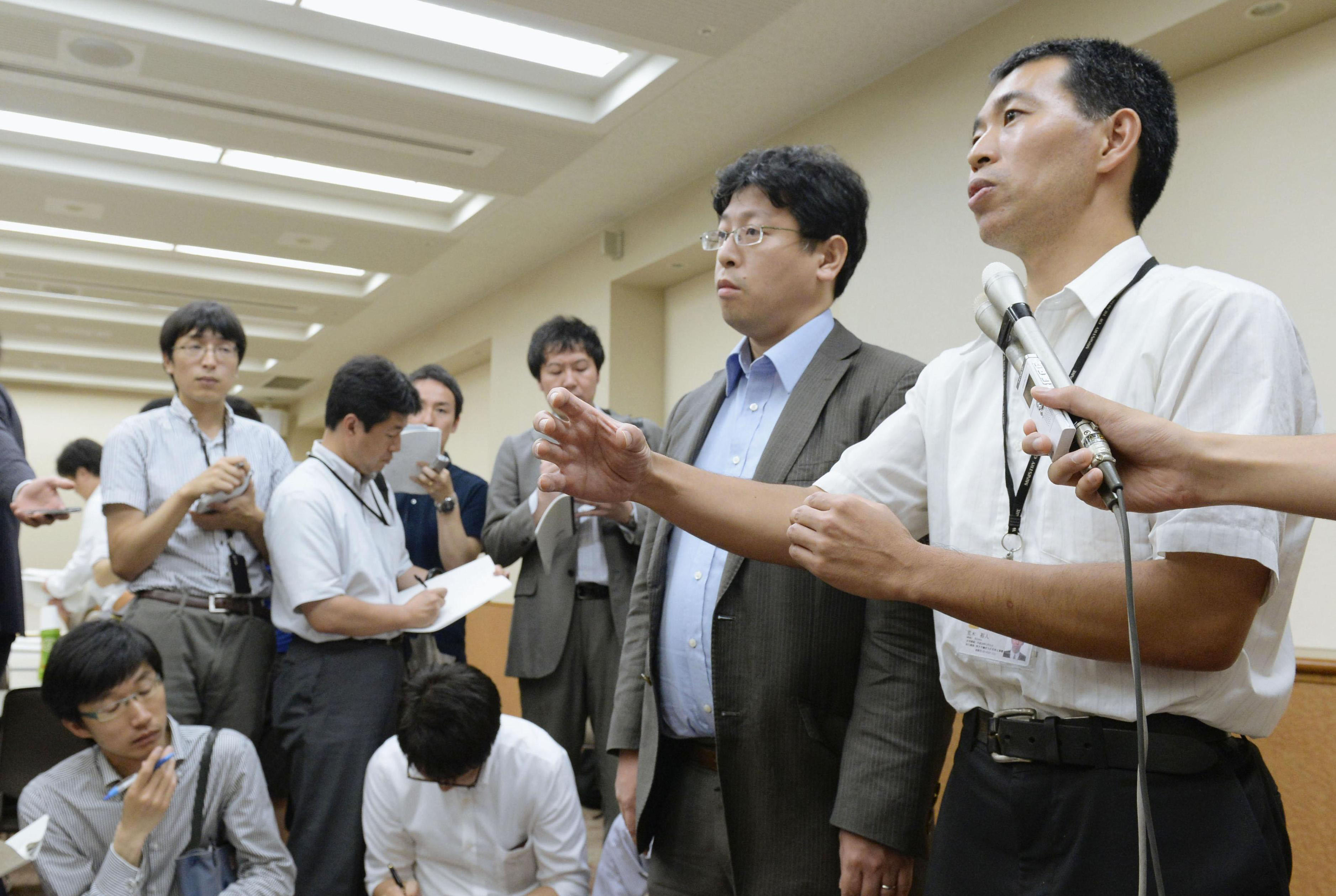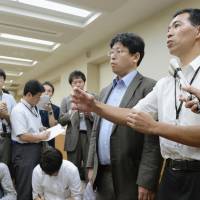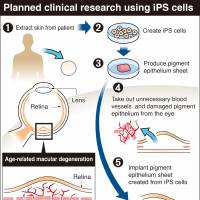A government panel Wednesday approved the world's first clinical research using human induced pluripotent stem (iPS) cells, which can grow into any type of human body tissue, officials said.
The governmental scientific research institute Riken and the Foundation for Biomedical Research and Innovation won the approval from the panel at the health ministry for their clinical research plan to use iPS cells for retinal regeneration.
The research may start this year after official approval by the minister of health, labor and welfare.
The clinical research comes after Kyoto University professor Shinya Yamanaka co-won the 2012 Nobel Prize in physiology or medicine for his development of iPS cells, which may be used for regenerative medicine and drug development.
Masayo Takahashi, an ophthalmologist who heads Riken's research team on retinal regeneration at the Riken Center for Development Biology, will serve as head of the clinical study at the foundation's hospital in Kobe.
Through the research, the team will try to develop treatment techniques to cure age-related macular degeneration in the exudative form, a condition that may cause a sudden loss of vision due to retinal damage. An estimated 700,000 people are affected by the disease in Japan.
The team plans to extract skin cells from several patients, create iPS cells from them, develop them into pigment epithelium of the retina, and transplant them into the patients to check if the transplant causes any problems. The transplants are expected to take place next year.
The research may be followed by another program to check if the treatment will be effective for improving the vision of patients.
Riken, whose official name is the Institute of Physical and Chemical Research, will cultivate the iPS cells at its facility.





